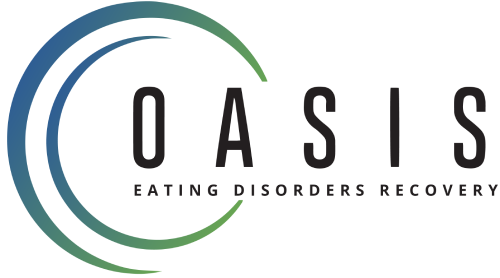Night eating syndrome (NES) is a serious, often misunderstood condition that disrupts both eating and sleeping patterns. It’s more than the occasional late-night snack—it involves recurrent eating episodes after the evening meal or during the night, often paired with disrupted sleep patterns, emotional distress, and a higher risk of other health conditions. At Oasis Eating Disorders Recovery in Fresno, California, we provide compassionate, evidence-based care for individuals living with NES, helping restore balanced eating habits, healthy sleep-wake cycles, and overall well-being.
Oasis Eating Disorders Recovery in Fresno, California provides specialized treatment for night eating syndrome (NES), a condition that disrupts both eating and sleeping patterns.
Evidence-based therapies offered include cognitive behavioral therapy (CBT), dialectical behavior therapy (DBT), trauma therapy, family-based therapy (FBT), and nutrition counseling, with medical and psychiatric support when needed.
What is night eating syndrome treatment? It combines psychotherapy, nutrition planning, and sleep regulation strategies to reduce late-night eating episodes and restore healthy routines.
Licensed healthcare providers may integrate psychiatric care and medication management, including SSRIs or melatonin, to address co-occurring conditions like anxiety, depression, or insomnia.
The program serves adolescents and adults with NES, binge eating disorder, bulimia, or related conditions, offering compassionate, outpatient-based recovery options in Fresno.
Night eating syndrome is a sleep-related eating disorder first described by Stunkard and later studied extensively by O’Reardon and Lundgren. Research published in journals like International Journal of Eating Disorders shows that the prevalence of NES in the general population is significant, and it is even higher among individuals with obesity, binge eating disorder, or bulimia nervosa.
Key characteristics include:
NES is listed in the Diagnostic and Statistical Manual of Mental Disorders under Other Specified Feeding or Eating Disorders and is recognized as a form of disordered eating with both behavioral and biological components.
Left untreated, NES can contribute to:
These issues are often made worse when NES co-occurs with binge eating disorder, anorexia nervosa, or bulimia nervosa, which is why an integrated approach to eating disorder treatment is essential.
The exact causes of NES are complex. Current research suggests a combination of:
Some individuals may also experience SRED (sleep-related eating disorder), where nighttime eating occurs without full awareness, often during sleepwalking episodes.

At Oasis Eating Disorders Recovery, the treatment of night eating syndrome is tailored to each client’s needs, addressing the physical, emotional, and behavioral aspects of the disorder. Our healthcare providers use a blend of therapeutic interventions and, when needed, medical support such as psychiatry and medication management.
Also known as talk therapy, psychotherapy offers a safe, supportive space to explore emotions, thought patterns, and life history. It’s a cornerstone for addressing disordered eating and the underlying triggers of NES.
Cognitive behavioral therapy is one of the most effective treatments for NES. It helps clients identify and change unhelpful thought patterns that reinforce unhealthy eating behaviors, snacking habits, and irregular food intake.
DBT focuses on building emotional regulation, distress tolerance, and interpersonal effectiveness—skills that are critical for reducing nocturnal eating and evening cravings.
Past trauma can fuel nighttime eating patterns. Our trauma-focused approach allows clients to process these experiences safely, reducing the emotional drivers of overeating.
For adolescents and young adults, family support is essential. FBT involves loved ones in the recovery process, improving accountability and promoting healthy eating habits.
Registered dietitians work with clients to create balanced daily food intake plans, reducing evening hyperphagia and supporting sustainable weight loss goals when appropriate.
For those with anxiety-driven eating patterns, ERP helps reduce avoidance behaviors and fears related to certain foods or eating episodes.
When traditional psychotherapy isn’t enough, EMDR can help address trauma that contributes to nighttime eating or disordered eating patterns.
We know that asking for help takes courage. Getting in touch is the first step. We’re here for you, no matter what. Once submitted, our admissions team will be in touch within 24 hours.
Or call us directly to get started: (559) 245-6203
Connect with our admissions team over the phone for a confidential conversation to understand your needs and goals.
Together, we’ll determine the level of care that best supports your recovery journey.
We create a comprehensive treatment plan to ensure continued healing and support with group therapy, nutrition, body image groups, individual/family sessions.
In some cases, psychiatry and medication may be integrated into care:
All medications are prescribed and monitored by licensed healthcare providers to ensure safety and minimize side effects.

Our NES program combines therapy, nutrition, and lifestyle changes to create a sustainable path forward. Interventions may include:
We welcome clients from all backgrounds, including:

We understand that NES affects far more than just eating—it impacts sleep, energy, emotional health, and self-confidence. Our team offers:
If you or someone you love is struggling with night eating syndrome, help is available. The team at Oasis Eating Disorders Recovery is here to support you with compassionate care, effective treatment options, and a commitment to long-term recovery.
Contact us today to schedule an assessment and begin your journey toward healthier eating habits, improved sleep patterns, and restored quality of life.


I will be back soon